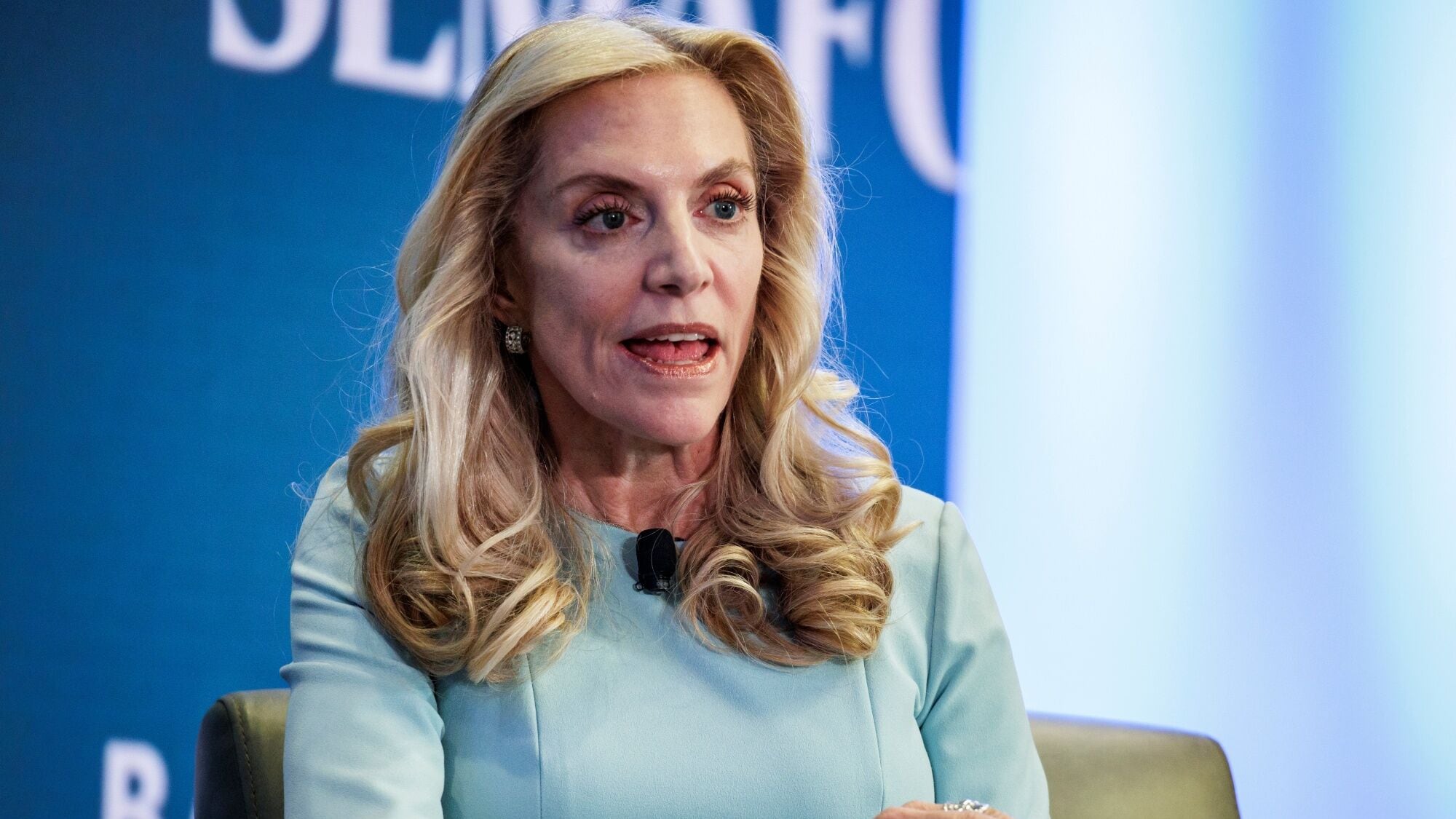(Bloomberg) -- The Biden administration is calling on Donald Trump’s team to continue work on bolstering supply chains and moving key strategic industries back to the US, saying hard-fought progress since the pandemic could evaporate if fresh risks emerge.
Lael Brainard, who leads President Joe Biden’s National Economic Council, is set to unveil a summary of supply chain recovery with a speech on Thursday at the Brookings Institution in Washington.
In an interview with Bloomberg News ahead of her speech, Brainard emphasized that the Biden administration had made progress in smoothing out the disruptions and obstacles that fueled inflation. She said the system was now more resilient, but she also noted risks, particularly in sectors where China is looking to corner markets.
The Biden administration put “our supply chains in much stronger position to withstand potential supply shocks from any of a number of different sources,” Brainard said in the interview. She pointed to semiconductor manufacturing subsidies as a key way to weaken China’s influence in the sector. “It will be important for the next administration also to continue those investments” and to support them with “targeted tariffs to help with diversification of those supply chains.”
The speech by Brainard — a former vice chair of the US Federal Reserve who serves as Biden’s top staff economic aide — comes as the president tries to recast his economic legacy and emphasize successes in taming the coronavirus pandemic as well as the inflation that followed in its wake. The administration is releasing its Quadrennial Supply Chain Review, which Biden ordered early in his term while moving to soothe shortfalls.
Earlier: Biden Made This Billionaire Much Richer. Trump Is a Threat
Unrest over price increases helped fuel Trump’s victory over Vice President Kamala Harris in last month’s election.
During the campaign, Trump pledged to use a combination of tax incentives and tariffs to force foreign companies to shift more production to the US. Biden’s policies and incentives have generated a surge of domestic factory construction and otherwise favored targeted tariffs and efforts in key sectors to get ahead of any dependency on an adversarial power.
Brainard pointed to the pandemic, Russia’s invasion of Ukraine, conflict in the Middle East — including attacks on shipping by Houthi militants in the Red Sea — and insufficient water levels in the Panama Canal as factors that strained supply chains in recent years.
“It is possible that we could see supply shocks coming from any of those areas, or potentially new risks emerge,” she said. She added, however, that the situation “is much more positive than when we came to office.”
Brainard said the administration’s supply chain strategy also included improving risk management in agencies and departments, such as a Department of Commerce program to spot early shortages in key industries, as well as diversifying away from China.
Brainard pointed to a range of key indicators that have fallen back to the historic range after surges. Those include the number of ships waiting in port to unload, the cost of ocean shipping, and retailer stock on hand, all of which have improved.
“It will be important in the years ahead to build on that work, because supply shocks can come from new areas,” she said in the interview.
Supply chain resiliency spills over to national security, she said, as adversarial countries look to dominate key industries to gain an advantage.
Earlier: Brainard Downplays Inflation Risk, Says Lower Rates Aid Housing
“What we have been much more attentive to in this administration than I think was previously the case, is the potential for some of these supply chain and manufacturing vulnerabilities to also be national security vulnerabilities, and we have used where appropriate and necessary national security authorities to shore up the resilience of our manufacturing in some of those areas,” she said.
The issue will be a focus of her remarks. She’ll say the US economy hadn’t seen an aggregate supply shock since the 1970s. “Both businesses and government were woefully unprepared,” Brainard will say in her speech, according to prepared remarks. So-called “just-in-time” supply chains favored by many industries, like retailers, “came at a cost,” she’ll say.
“The work on strengthening America’s supply chains should continue since we are likely to encounter additional supply shocks in the years ahead,” she’ll say. New dependencies are constantly emerging and require a response, and certain critical products and minerals need more support to codify domestic capacity, she’ll say.
“It will be important to utilize the full scope of our national security tools to protect supply chains when necessary” to ensure “foreign adversaries cannot exploit consumer products that Americans use every day for harmful purposes,” she said, citing a move that bars Chinese-made smart vehicles from American roads as an example.
“Building resilience in our supply chains is not a partisan effort. It’s a national priority borne out of hard-fought experience,” she’ll say.
©2024 Bloomberg L.P.
